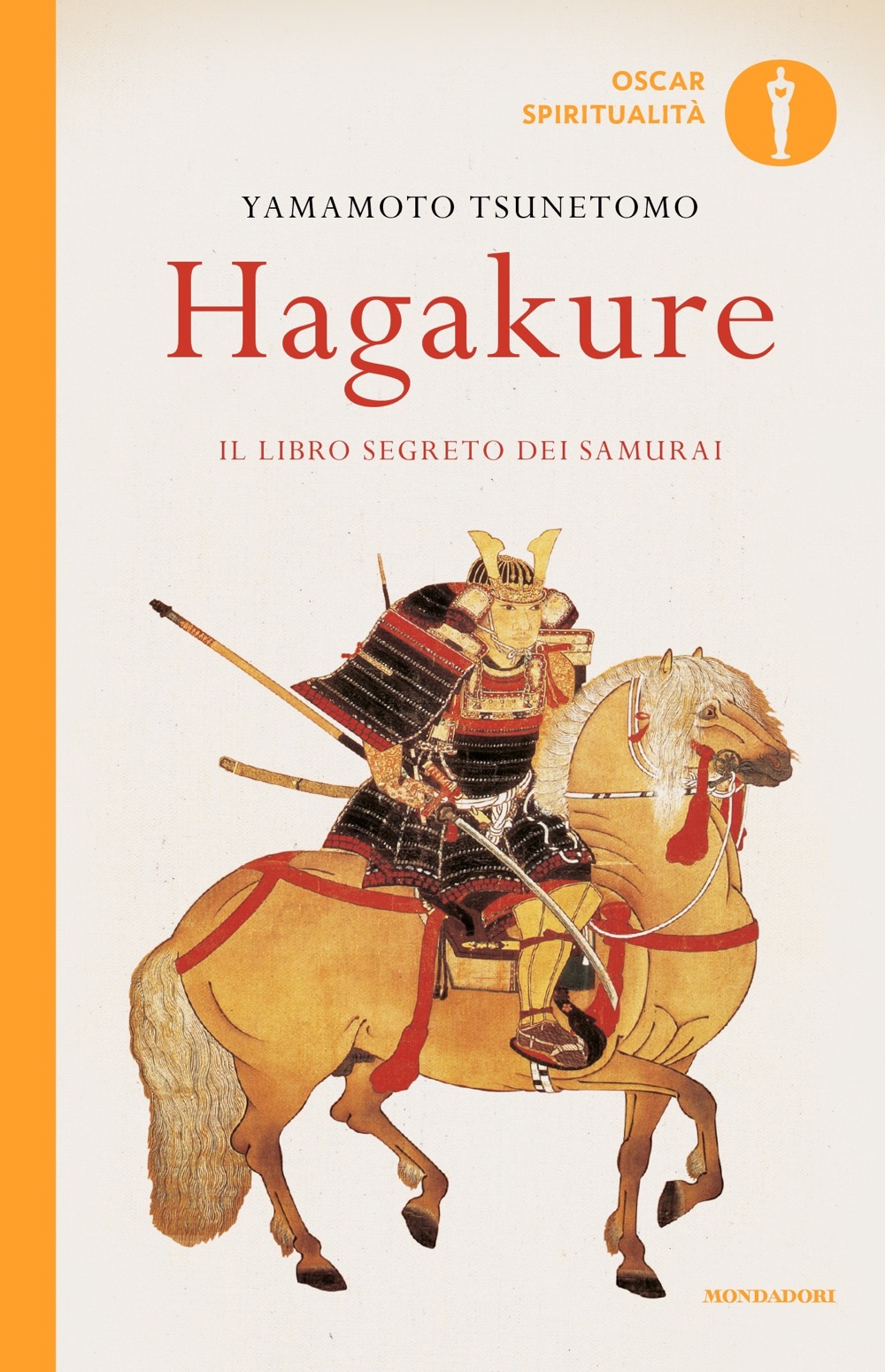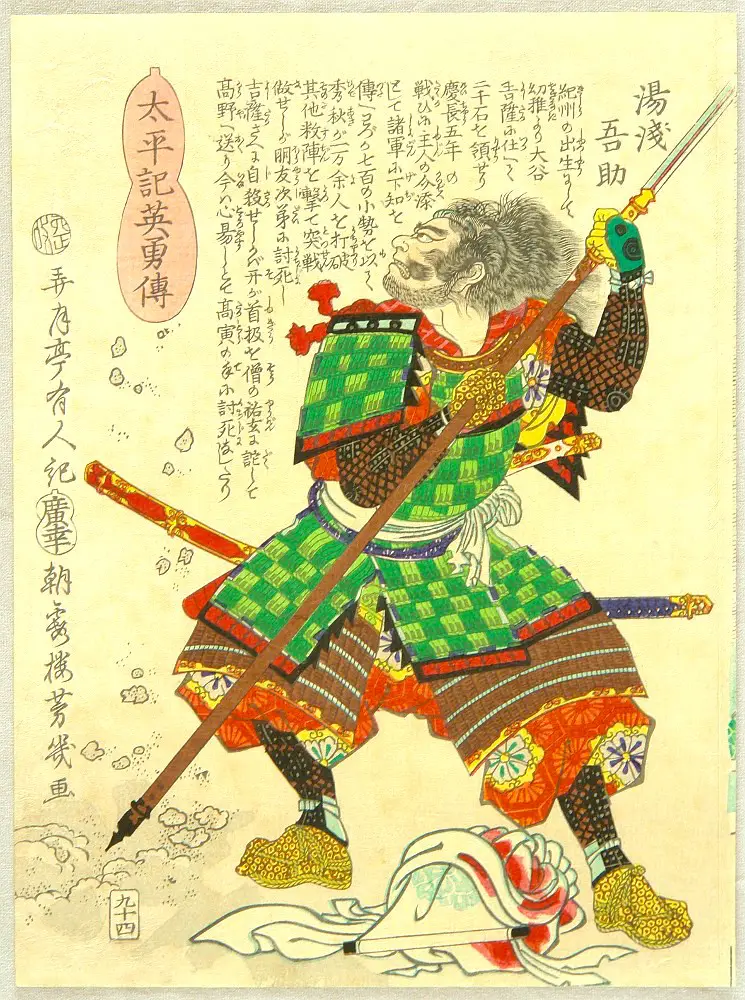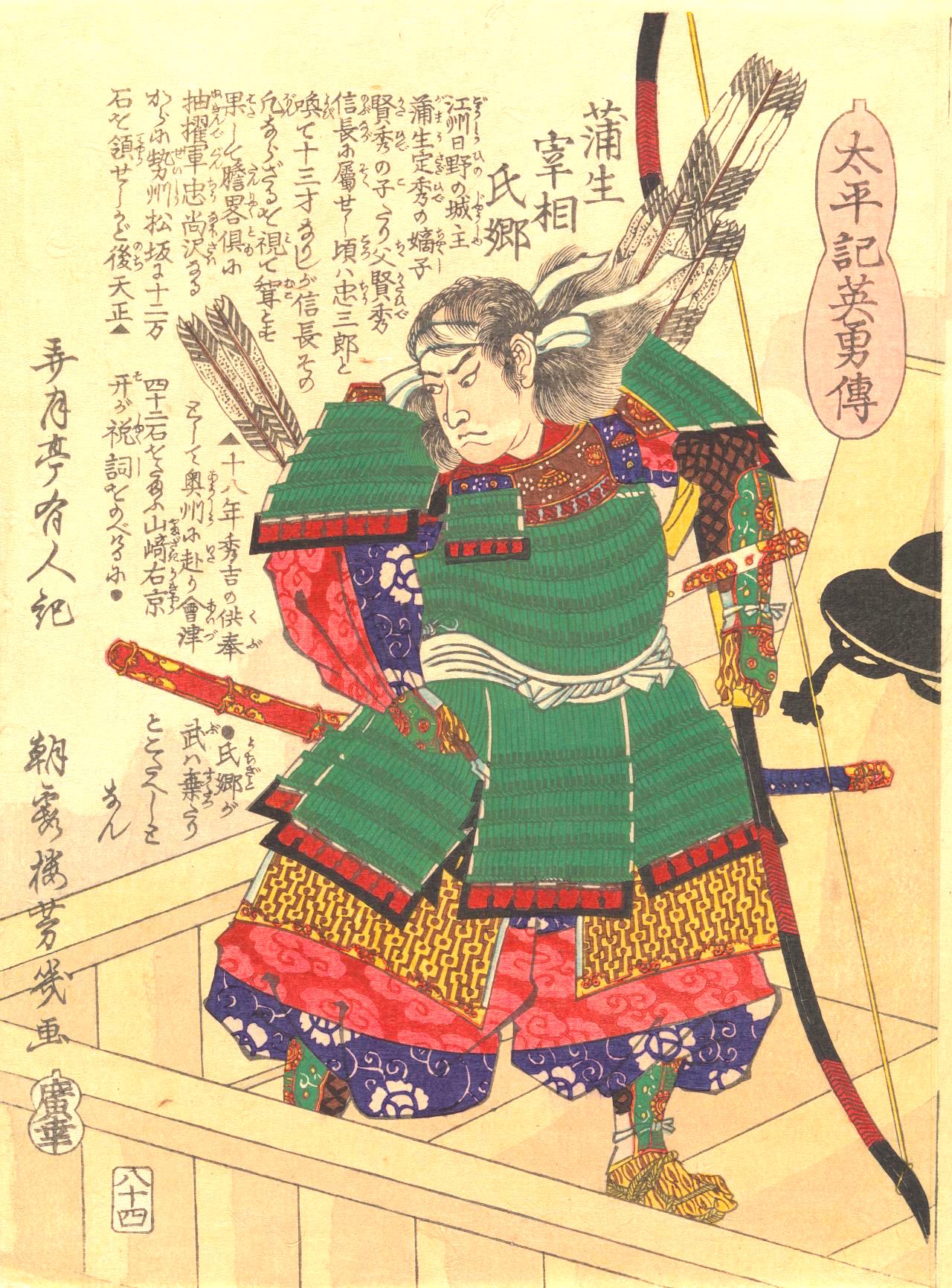For several centuries the Japanese samurai caste has passed down a set of ethical standards and military which, although they seem to date back to 660 BC, were put in writing in the form of a code only between the fifteenth and sixteenth centuries by Tsuramoto Tashiro, who wrote the Hakagure according to the precepts that were taught to him by the warrior monk Yamamoto Tsunetomo.
di Samuel Baricchi
originally published on Italian Sword & Sorcery
and here revised by Marco Maculotti
cover: Yoshiiku Utagawa
"Fast as the wind, as peaceful as a forest and as immovable as a mountain. "
— Takeda clan
For centuries and centuries the Japanese fighting class has passed down from grandfather to grandson a set of precepts, values and customs that were standardized and canonized only around 1600 AD. Although this set of military and moral norms seems to date back as far as 660 BC, the samurai code was put in writing only between the fifteenth and sixteenth centuries from Tsuramoto Tashiro, who wrote theHakagure, according to the precepts that were taught to him by the warrior monk Yamamoto Tsunetomo.

GI — "There is only what is right and what is wrong"
YU — "Heroic courage is not blind, but intelligent and strong" or "Hiding like a turtle in a shell is not living"
JIN — "Intense training makes the samurai quick and strong. He is different from others, he acquires a power that must be used for the common good. He has compassion, he takes every opportunity to be of help to his fellow men, and if the opportunity does not present itself he goes out of his way to find one. The compassion of a samurai must be shown above all towards women and children. "
REI — “Samurai have no reason to be cruel, they don't need to show their strength. A Samurai is also kind to enemies. Without this display of outward respect a man is little more than an animal. The Samurai is respected not only for his strength in battle but also for how he interacts with other men. The best fight is the one avoided. "
MAKOTO — “When a Samurai expresses the intention to perform an action, this is practically already completed, nothing will prevent him from carrying out the expressed intention. He does not need either to "give the word" or to promise. Talking and acting are the same thing. "
MEYYO — “There is only one judge of the Samurai's honor: himself. The decisions you make and the actions that follow are a reflection of who you really are. You cannot hide from yourself. "
CHUGI — “For the Samurai, performing an action or expressing something is equivalent to becoming its owner. He assumes full responsibility, including for what follows. The Samurai is immensely loyal to those he cares for. He remains fiercely loyal to those for whom he is responsible. "

In this set of precepts we can first notice a tendency, typical of the zen buddhism, to "mix" rules related to materiality and immateriality. According to Taoist conception of the universe, everything reveals its opposite, through the dualism yin/that. Also in this series of teachings present in theHakagure we see the sense of completeness typical of Far Eastern cultures. Yes, everything is concrete, but it also has a "higher" intrinsic value, linked to the sphere of the non-sensitive, every physical characteristic of a Samurai warrior (from verb samurere, "Enslave") is not an end in itself, but indeed enslaved to a deeply ethical value.
GI
In the precept of GI there is the conviction that ethics is one, there are no more types of ethics, as in modern Western philosophy, and there are no shortcuts and half terms, there are no titles or guarantees, there is no "buying and selling of indulgences", every man is responsible for his honor and deeds, morality consists in doing what is right. Through this initial concept you can rattle off the whole via del Bushido (from "bu", warrior on horseback, "shi", corresponding to the Greek anèr, or man in the fullest of his intellectual faculties, and "do", which means "way, path, road" from a purely moral point of view) .
By "what is right" we mean something that the Japanese tradition takes for granted, as it dates back to doctrines prior to the way of the warrior. Parallel to the transcription of the ethical principles of fighters, which clearly recall the European code of chivalry and the mos Maiorum Ancient Roman, during the Tokugawa period the philosophy of Zen Buddhism also developed and took a well-defined form, although it was a way of life that people followed for centuries and centuries.
What is "right" is what leads to Satori, lighting mystique according to Japanese culture. Il Satori differs from the Nirvana of the ancient Hindu and Buddhist tradition as the latter expresses an eternal moment, a spiritual condition of the intellect and soul, which has abandoned the cycle of physical reincarnations represented by the wheel of Samsara fleet, to become only an "astral" being, that is, bound solo ed eternally to a dimension of the Beyond, of the Absolute; enlightenment in the Japanese sense is a moment hic and nunc, here and now, and the exercise of meditation za zen (literally "meditating in tranquility") should lead to the application and achievement of this condition in everyday life, in the materiality of everyday life.

YU
The precept YU indicates a sort of real overthrow of Greek Epicureanism. The latter considers a refractory attitude to be valid, a departure from life and its carnality, a choice between “catastematic” and “kinetic” pleasures, starting from a conception of the universe based on Democritean atomism. YU instead indicates clearly that "Hiding like a turtle in a shell is not living", and here we see the reference to the sphere of action, but this type of courage in exposing oneself to the world must not be, precisely, blind, but guided by the intellect and rationality, otherwise, we are little more than animals.
JIN
The precept JIN is strongly linked to the theme of compassion for others, a value that we easily find in the epic of chivalry and in Western Christian ethics, Orlando was in fact "holy" as a martyr for the Christian cause and the knights were kind to women and children, as explained inHakagure. This conception is almost identical and there is a strong parallelism, as far as this ethical value is concerned, between the Samurai and the Knight.
According to the philosophy of Zen Buddhism, every man is in fact responsible and influenced for and by every living being. In fact, a Samurai should never make a distinction between friend and enemy, as they are both part of the same Whole. "Bury your enemy", is another leitmotif of the Far Eastern tradition. In the sense of "defeating" one's opponent, whatever and whatever entity it represents, and precisely "burying him", honoring him, performing the funeral rite which symbolically also represents leaving behind the beaten enemy, since, always according to the Zen, every instant, every moment of reality is independent, and there is no future, present, or past. Each moment is untied and free in its uniqueness.

REI
REI instead it indicates kindness, in the sense in which "the best fight is the one avoided", and is connected to the theme of respect for one's own enemy as well. It can be noted that each precept is independent, but intrinsically connected with all the others: this becomes easily understandable by taking into consideration the Eastern and especially Buddhist conception according to which everything is One.
MAKOTO
MAKOTO expresses the sense of honor in the instant in which action and thought coincide: for a Samurai there is no "given word", he does exactly what he intends to do, and takes all responsibility for it, an apparent freedom of purpose in reality extremely connected to the concept of Satori, a moment of enlightenment mystique, total, during which everything is both thought and action.

MEYYO
MEYYO it is always connected to acting in relation to the sphere of the non-sensitive and of the essence, "you cannot hide from yourself" is almost reminiscent of the "know yourself" oracle of Delphi of ancient Greece, every action reveals what you are intimately, and every choice therefore must be guided by the intellect and the soul.
CHUGI
CHUGI on the other hand, it concerns the concept of fidelity and enslavement to the master, in a broader sense it means respect for those whom one has chosen to protect, and the full assumption of their responsibilities in relation to their actions.

Il Seppuku
Every precept of Bushido, if not respected, inevitably leads to Seppuku, ritual suicide. This aspect is singular and clearly and certain expresses the strong importance of the ethical sphere for a Samurai and for a man of Japanese origins or who follows doctrines of an oriental nature. It is very far from the distorted concepts of so-called cultures new age, who instead preach that a moral rigor, an alleged freedom given by the awareness that every moment is not repeatable, but precisely for this reason, according to the philosophy of Zen Buddhism, reso unrepeatable from the action, which instead the new age it does not, by muddying the waters and muddying, not in the sense of dirtying but in the sense of making it less clear, the concept of the honor of the ancient East.
When it comes to the Orient, we must abandon the prejudices created by the same people who claim to be "guru" or "masters" in the field of Zen, when instead one of the greatest Zen masters Ikkyu Sojun, in the XNUMXth century, he wrote that "no one should call himself a Zen master"Or"I will never look at him again": In his eyes, he will lose respect and honor itself, no one will look after him anymore.
Il Seppuku It consists in beheading and voluntary evisceration, to which the Samurai who has betrayed his ideals undergoes, by means of a short sword. The cut had to be done from left to right and then up while standing in the classic Japanese position called seiza, that is, kneeling with the toes pointing backwards; this also had the function of preventing the body from falling backwards since, according to the moral code then followed, the warrior must die by falling honorably forward.
To preserve the samurai's honor even more, a trusted companion, after promising his friend, decapitated the samurai as soon as he had injured his abdomen, so that the pain would not disfigure his face. La kaishaku, beheading, required exceptional skill and indeed il kaishakunin he was the most skilled friend in the art of katana, and also the most "steadfast" from an emotional point of view: an error due to lack of skill or excessive sensitivity would have caused further and unnecessary suffering.

The ethics of Bushido
The way of the warrior or Bushido coincides in many respects with the European chivalric ethic: often in fact, in many heroic epics, we see the idealized knight and defender of the weak and the oppressed who serves his master blindly and is "blessed by God" in doing so. The guarantee is eternal salvation, a theme generally foreign to Eastern traditions, as they do not have the sense of sin and the sinner, but share the same substratum, the same life force and the same intentions. The purpose, between a knight and a samurai, is almost the same, the achievement of a higher, spiritual status through the exercise of ethically worthy actions.
All that is ethical it is in itself therefore also right, and all that is right echoes in the actions of men, adhering to the natural human condition, to the awareness that every moment is in itself becoming — "everything flows" and "it is not possible to enter the same river twice " (these phrases are from Heraclitus, an ancient Greek philosopher who was not by chance very much influenced by the doctrines of oriental thought) — and unrepeatable, unique, and in the individuality there is a part of the Whole, which unfolds through the two Taoist aspects of yin and the that.


2 comments on “Bushido: the samurai code according to Yamamoto Tsunetomo's Hagakure"